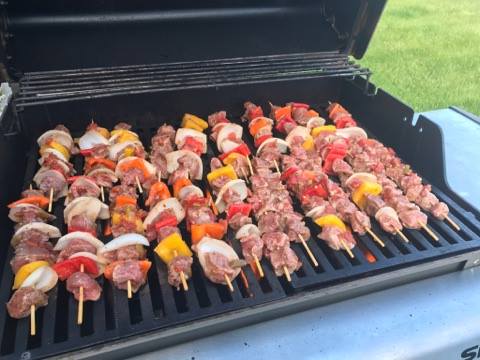You don’t need a 5-step process to ditch meat; just keep eating it for your health and wellness.
July 24, 2017

The Meatless Monday movement is based on animal rights rhetoric and the misguided notion that their ethics are superior to the low-lifes who choose to eat meat, dairy and eggs in their diets.
Of course, that’s just my opinion.
The folks behind this crusade have likely never been to a farm or ranch, and many base their decision to forego an entire food group on misinformation and dramatic videos and documentaries created by the creators of the movement themselves.
This movement to ditch the beef continues with a recent article written by Jared Piazza for Science Alert.
Piazza writes, “Are you a conflicted carnivore – loving meat but also hating that you love it? Perhaps you are worried about the carcinogenic, heart-clogging properties of cooked meat or the industry's use of antibiotics creating threatening superbugs. Maybe you're ashamed of all the wasted water and food that goes into meat production and the deforestation and damaging emissions caused by animal agriculture. Many of us also simply struggle to accept the justifications used to defend the killing of intelligent, emotionally sensitive animals.”
He offers five ways to psychologically trick your body that it doesn’t need meat including, being prepared, mindfully eating, broadening your outlook, picturing the emotions of the animals and finding sympathetic friends.
When you’re a meat-eater, you don’t need to play mental games to trick yourself not to eat something that’s naturally nutrient-rich and proven for centuries to be a healthful, enriching food for our bodies, brains and overall well-being.
Here is my response to these tips for going meatless:
1. Be prepared
While Piazza suggests planning ahead with veggie options and replacing traditional holiday fare like turkey at Thanksgiving with a falafel or vegetarian pizza, when you eat meat without the guilt, you can enjoy it without having to trick your brain that the substitute tastes just as good as the original.
Preparing as a meat eater means thawing your steaks, firing up the grill, cooking to a medium rare and enjoying with a dash of salt and pepper. It’s as simple and easy as that.
2. Try mindful eating
The blog post talks about training your brain to overcome temptation by placing greater attention on our food-related thoughts and eating. When you eat animal proteins and fats, your body stays fuller longer, and because you’re satiated, you don’t have to fight cravings. You can be mindful of the foods you eat by knowing with great confidence that beef is packed with protein, iron, zinc, B-vitamins and healthy saturated fats. No supplements or mind games required.
3. Broaden your outlook & picture the animals
Piazza says ditching meat can save 30 animal lives each year. Even if you skipped meat in the diet, he neglects to recognize the animal by-products most consumers rely on each and every day. Makeup, medicine, antifreeze, insulation, shampoos/conditioners, charcoal, glass, airplane lubricants, hydraulic brake fluid, biodiesel, marshmallows, ice cream, gum, candy, shoes, purses, wallets, plant, asphalt, softballs, baseball gloves, car upholstery and the list goes on and on.
4. Find sympathetic friends
Apparently, being a vegetarian or vegan is quite isolating. What a bummer to never eat steaks, burgers, bacon or cream in your coffee! How depressing would a diet of tofu, lentils, peanut butter and supplements be! What’s a summer barbecue with friends without beef? Friends and family tend to congregate when there’s the smell of meat wafting from the grill.
Piazza is a lecturer in social psychology, not an expert on animal agriculture or nutrition. We certainly do not see eye-to-eye on this issue, and my opinion is, we need to listen to our body’s cues. If you have to fight against eating meat so hard, perhaps it’s time to look back on the history of civilizations that ate meat and know that those who remained the healthiest included diets rich in animal fats and proteins. But that’s just my two cents.
The opinions of Amanda Radke are not necessarily those of beefmagazine.com or Penton Agriculture.
About the Author(s)
You May Also Like



.png?width=300&auto=webp&quality=80&disable=upscale)
.png?width=300&auto=webp&quality=80&disable=upscale)
